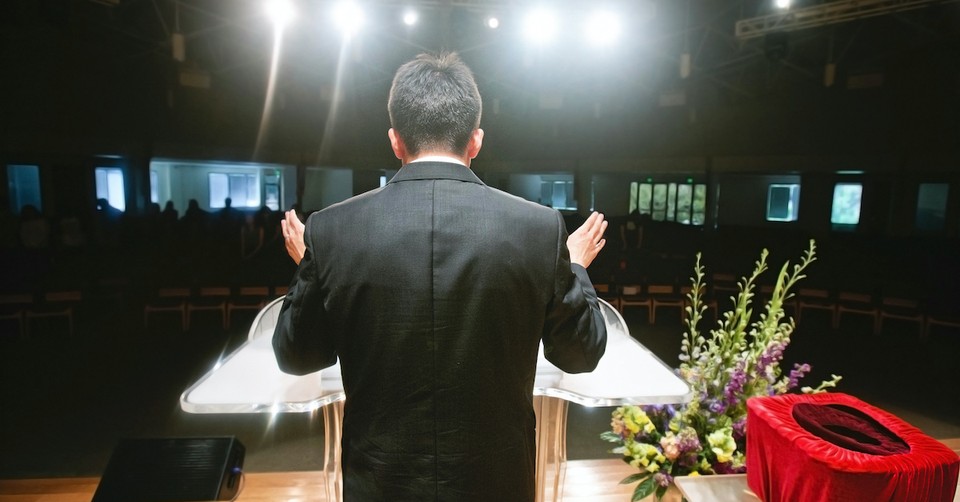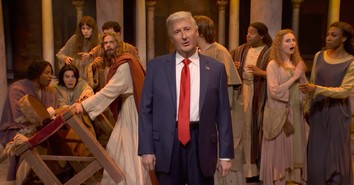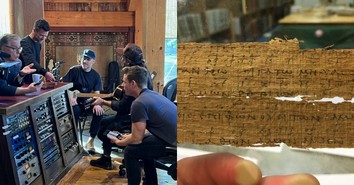Alistair Begg Addresses His 'Transgender Wedding' Critics during Sunday Evening Sermon

Pastor Alistair Begg on Sunday defended his much-debated advice to a grandmother about attending an LGBT wedding, saying his comments were not meant to be blanket advice for all Christians but instead were aimed at helping a grandmother find a balance between reviling and affirming her grandchild.
“My response to one grandmother whom I have never met was not in any way a blanket recommendation to all Christians to attend LGBTQ weddings,” said Begg, the senior pastor at Parkside Church near Cleveland, Ohio, and a well-known voice who is heard daily on his radio program, Truth For Life.
Begg addressed the controversy during his Sunday evening sermon as he preached from Luke 15 and discussed the Parable of the Lost Sheep, the Parable of the Lost Coin and the Parable of the Prodigal Son.
Earlier this month, a social media debate broke out over comments Begg made in a September interview in which he advised a grandmother to attend the wedding of her grandchild who was involved in a transgender relationship. The grandchild knew that the grandmother was a Christian who opposed homosexuality, Begg said. Begg encouraged the grandmother to take a gift, noting she was worried about losing the relationship with the grandchild.
“In that conversation with that grandmother, I was concerned about the wellbeing of their relationship more than anything else -- hence, my counsel,” Begg said. “Don't misunderstand that in any way at all. If I was on the receiving end of another question about another situation from another person and another time, I may answer absolutely differently. But in that case, I answered in that way, and I would not answer in any other way no matter what anybody says on the Internet as of the last 10 days.”
Begg noted that the older son in the Parable of the Prodigal Son rejected the grace and forgiveness that was shown to the younger son. Begg said his natural inclination on the subject of LGBT issues is to be like the older son.
“I've lived here for 40 years,” said Begg, who was born in Scotland, “and those who know me best know that when we talk theology, when we talk stuff, I've always said [that] I am a little bit out of sync with the American evangelical world. [That's] for this reason: that I am the product of British evangelicalism, represented by John Stott, Martyn Lloyd-Jones, Eric Alexander, Sinclair Ferguson and Derek Prime. I am a product of that. I have never been a product of American fundamentalism. I come from a world in which it is possible for people to actually grasp the fact that there are nuances in things. Everything is not so categorically clear that if you put one foot out of this box, you’ve got to be removed from the box forever.”
Begg recently preached on Romans 1 and affirmed the Bible’s teaching that homosexuality is sinful, he said. The challenge, he said, is this: “How do you express the love of Jesus and do so in a way that doesn't just compromise everything?”
“How do you honor God, obey His Word, and treat your neighbors and your friends and your family members who have decided to go down this wrong path? Some people have decided the way to handle it is by admonition. So you just simply stand up and keep telling them, ‘This is terrible. This is terrible. This is terrible.’ Some people have decided, ‘Well, we just won’t say anything at all. Just let it go. Who cares? You know, it's a big world. People do different things.’ Neither [position] is a possibility for a Bible-believing Christian. We are to treat with honor those who view us with hatred.
“Now, understand that this grandchild was an enemy of the gospel, an enemy really in the family circle by dint of her lifestyle, an enemy. And Jesus says: You're supposed to love your enemies. Now, we can disagree over whether I give that grandmother good advice or not. Not everybody on the pastoral team thinks I gave very good advice. And as I said, you know, on another occasion with a different person in a different context, the advice may be very different.
“But at least let's acknowledge the fact that what we're doing is we're wrestling with biblical principles.”
Begg then asked: What if the grandmother’s gift was a Bible?
RELATED:
Alistair Begg Stirs Debate for Encouraging Grandma to Attend Transgender Wedding
American Family Radio Drops Alistair Begg over LGBTQ Wedding Comments
“You've got a problem with the grandmother showing up sitting on the front row in a context that she absolutely despises, and sitting on her lap, nicely wrapped with beautiful paper, and a bow around it, is her gift -- the gift of a Bible for a granddaughter she knows, has no interest in the Bible? But because she believes that the entrance of God's Word brings light, she is prepared to trust the Holy Spirit to do the work.
“What happens to homosexual people, in my experience, is that they are either reviled or they are affirmed. The Christian has to say, ‘We will not treat you in either of those ways. We cannot revile you, but we cannot affirm you. And the reason that we can't revile you is the same reason why we can’t affirm you -- because of the Bible, because of God's love, because of His grace, because of His goodness.’”
Not long ago, Begg said, he preached a sermon on homosexuality and had a lesbian stand up and walk out, offended.
If he is going to err, Begg said, he will do so on the side of compassion.
“I will go down on the side of compassion with people actually accusing me of just weakness, rather than go down on the side of condemnation, which closes any doors of opportunity for future engagement with those who know exactly what we believe about the Bible and about Jesus.”
Meanwhile, Begg said one of his goals is to guard against Phariseeism in his own life. Pharisees “had nothing to say to sinners,” he said.
“Phariseeism is alive and well in all of our hearts,” he said. “We have to guard against it. The motivation for purity and holiness of life and circumspection and so on is absolutely unquestionable. The real challenge comes when we are confronted by issues that don't just fit our clean little categories. What distinguishes Jesus from the Pharisees -- quotes [John] Stott -- was in a word, Grace, the divine initiative, which forseeks and then saves the lost sinner.”
Image credit: ©Hotaik Sung
Michael Foust has covered the intersection of faith and news for 20 years. His stories have appeared in Baptist Press, Christianity Today, The Christian Post, the Leaf-Chronicle, the Toronto Star and the Knoxville News-Sentinel.
Listen to Michael's Podcast! He is the host of Crosswalk Talk, a podcast where he talks with Christian movie stars, musicians, directors, and more. Hear how famous Christian figures keep their faith a priority in Hollywood and discover the best Christian movies, books, television, and other entertainment. You can find Crosswalk Talk on LifeAudio.com, or subscribe on Apple or Spotify so you never miss an interview that will be sure to encourage your faith.
Originally published January 30, 2024.





